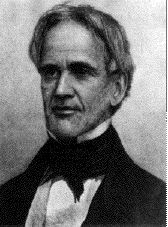Unitarians wanted to remove education from the hands of the orthodox Christian churches. They sought to make all education the responsibility of the state; they were able to impose their will on Massachusetts by the 1830s. The first secretary of the state board of education was a man by the name of Mann.
 Horace Mann was a Unitarian who was placed in control of Massachusetts state education in 1837. He exhibited all the beliefs of the Unitarians with respect to the efficacy of education—that it would be the cure for all of society’s ills. This is clearly revealed in one of his rapturous quotes, where he said:
Horace Mann was a Unitarian who was placed in control of Massachusetts state education in 1837. He exhibited all the beliefs of the Unitarians with respect to the efficacy of education—that it would be the cure for all of society’s ills. This is clearly revealed in one of his rapturous quotes, where he said:
The Common School is the greatest discovery ever made by man.
Stop and contemplate that for a moment. The greatest discovery? Out of all the discoveries of the centuries? Just exactly what did he think common schools would accomplish?
Let the Common School be expanded to its capabiliities, let it be worked with the efficiency of which it is susceptible, and nine-tenths of the crimes in the penal code would become obsolete; the long catalogue of human ills would be abridged; men would walk more safely by day; every pillow would be more inviolable by night; property, life, and character held by a stronger tenure; all rational hopes respecting the future brightened.
No, you didn’t misread that. He’s saying that if we would set up the common [public] schools, we would rid the nation of 9/10 of its crimes. You see, in his view, education was the key to all things. All we had to do was educate children, and they would then do whatever is right. That’s quite some faith. In the real world, as we experience it today, it’s not too much of a stretch to say that 9/10 of the crimes in society are being committed in the schools.
Horace Mann’s vision could not be achieved. The Unitarian belief that man can be educated into perfection was a fantasy. Yet Mann, in the common perspective on the history of public education, is a hero. Many schools [and even an insurance company for teachers] are named after him.
As I mentioned in a previous post, Unitarians were not exactly dominant in America. By themselves, they never could have spread a government-run system to all the other states. They needed some help. We’ll look at their helpers in future posts.
